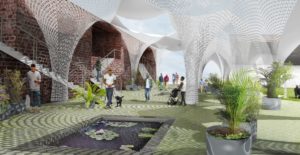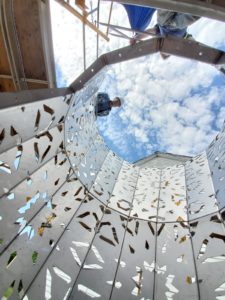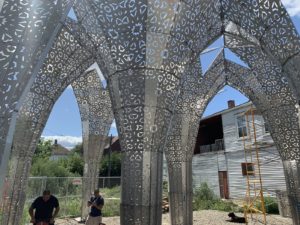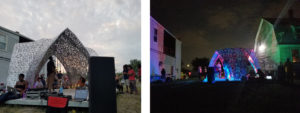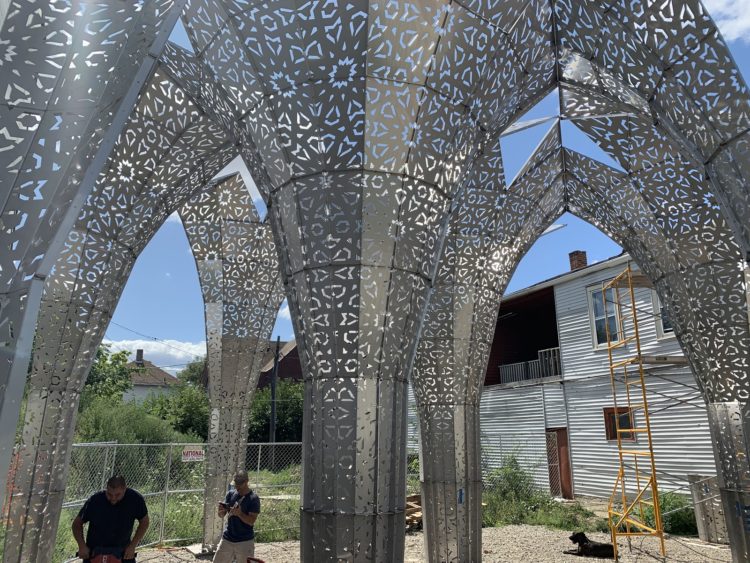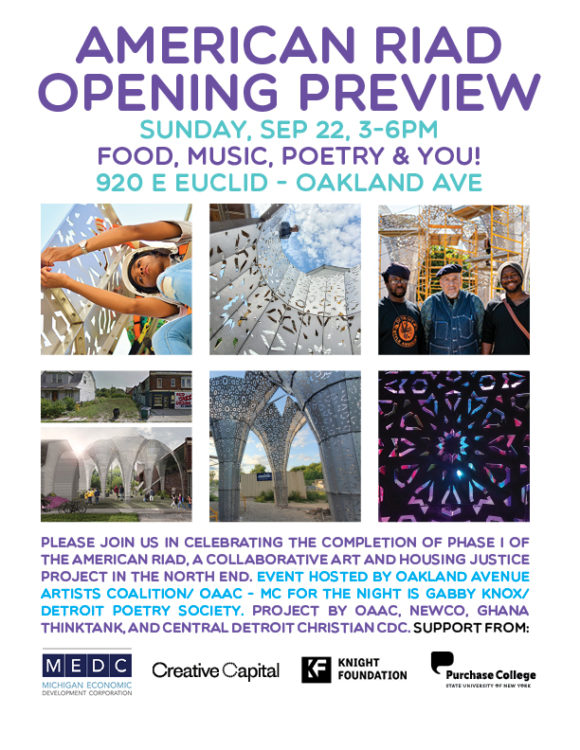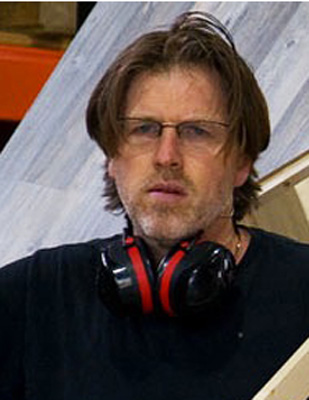
John Ewing
Roxbury, MA
John Ewing is a digital media artist specializing in participatory installations with an emphasis on social activism and cross-cultural exchange. His recent work has been featured in major international exhibitions such as the Venice Biennial of Architecture; Hong Kong/Shenzhen Biennale in Shenzhen, China; ZKM | Media Museum, Karlsruhe, Germany; the Museum of Contemporary Art in Bat Yam, Israel; the Foundation for Art and Technology, Liverpool, UK; and Eyebeam Center, New York. His project Virtual Street Corners was chosen from over 2,300 international applicants for the Knight Foundation’s News Challenge Award and was cited by Americans for the Arts as one of the most significant public art projects of 2010. Ewing holds a BFA from Cornell University and an MFA with honors from the Rhode Island School of Design.
From the Journal
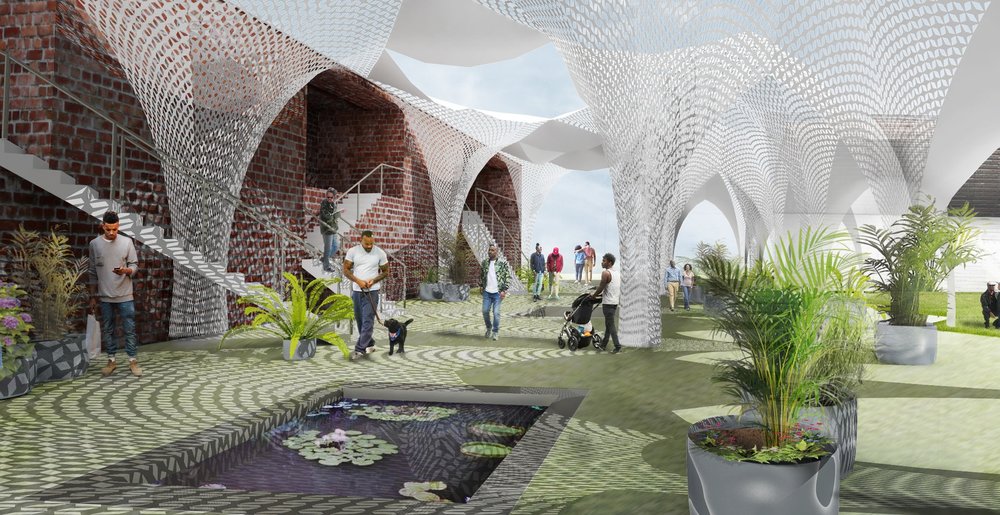


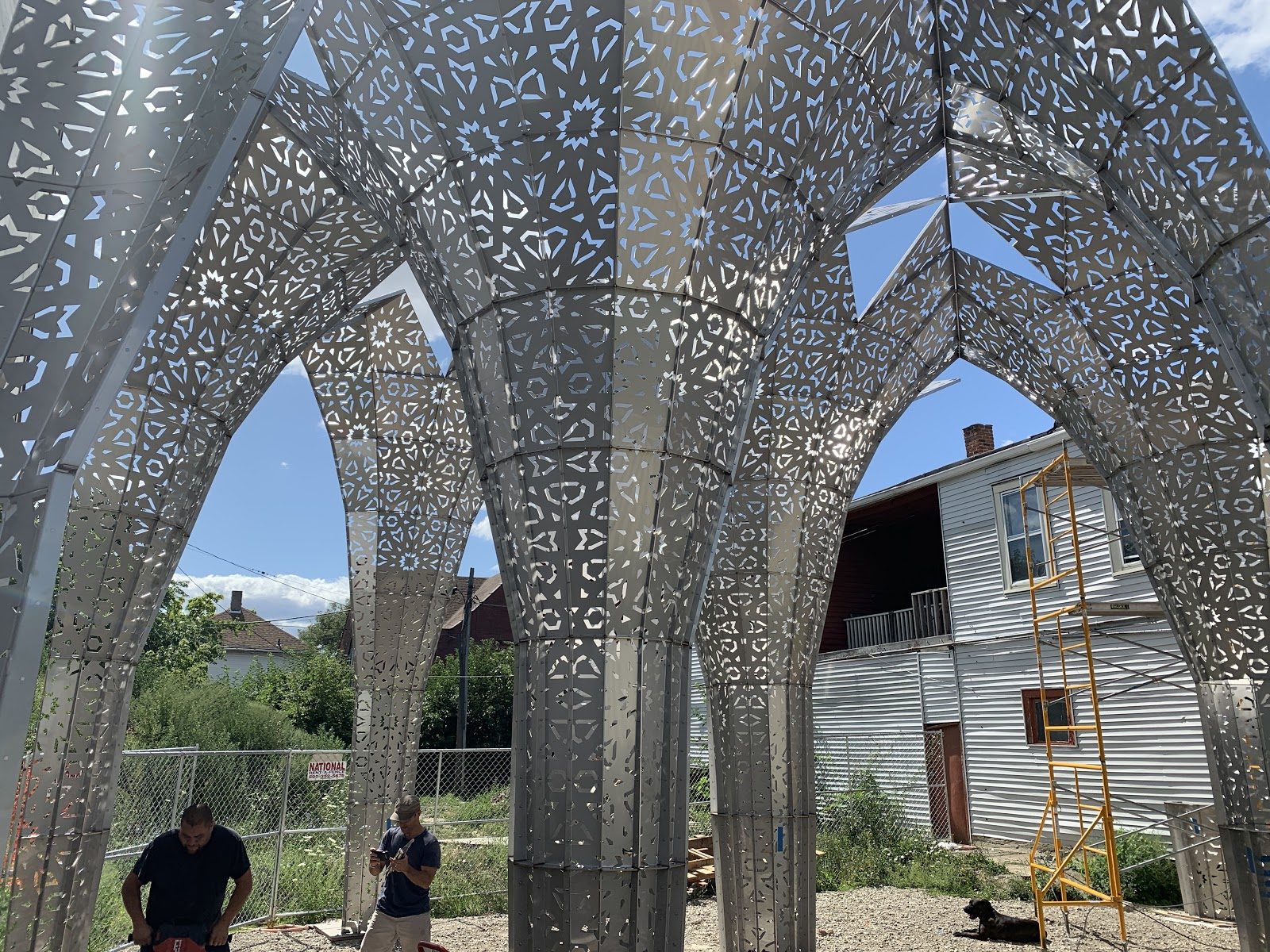

Kylah, a member of “Grow Detroit’s Young Talent” Program, working on the American Riad by Ghana ThinkTank.
Installation image of American Riad by Ghana ThinkTank under construction, 2019. Photo: John Ewing
American Riad
Ghana ThinkTank is a worldwide network of think tanks creating strategies to resolve local problems in the “developed” world.
MoreJohn Ewing is a digital media artist specializing in participatory installations with an emphasis on social activism and cross-cultural exchange.
Artist BioMaria del Carmen Montoya operates in the contested ground between art and social activism. Her primary medium is the communal process of making meaning.
Artist BioChristopher Robbins works on the uneasy cusp of public art and community action, creating sculptural interventions in the daily lives of strangers.
Artist BioSince 2006, the Ghana ThinkTank has been “developing the first world,” collecting problems in the “first” world, and sending them to think tanks in the “developing” world to propose solutions. When the group asked a Moroccan group to help solve the American issue of Social Isolation—neighbors not knowing each other and entire communities cut off—they responded that the problem was our architecture. They observed that the American dream of the single-family home meant that neighbors were separated from each other. Even in cities, Americans manage to create isolation through our architecture and neighbors often don’t know each other. In contrast, they said, Moroccan architecture creates community. Urban or rural, the riad gives people shared entrances to their homes. “You need to make your architecture more like ours.”
So, the Ghana ThinkTank is partnering with the Detroit organizations to implement the Moroccan solution in the form of an affordable land trust that resists real estate speculation. With a series of no-interest loans, they have purchased an empty 12 unit building, an abandoned house and the empty lot that lies between them in order to build an Islamic Riad: communal housing surrounding a central courtyard. They will form a land trust and pursue a model of development based on arts and culture that seeks to prioritize retention of neighborhood residences and businesses in the midst of a developing neighborhood. While many are demonizing Muslims and immigrants as a threat to American culture and safety, this public art project instead looks at how Americans can learn from Islamic and African Culture to solve American problems.
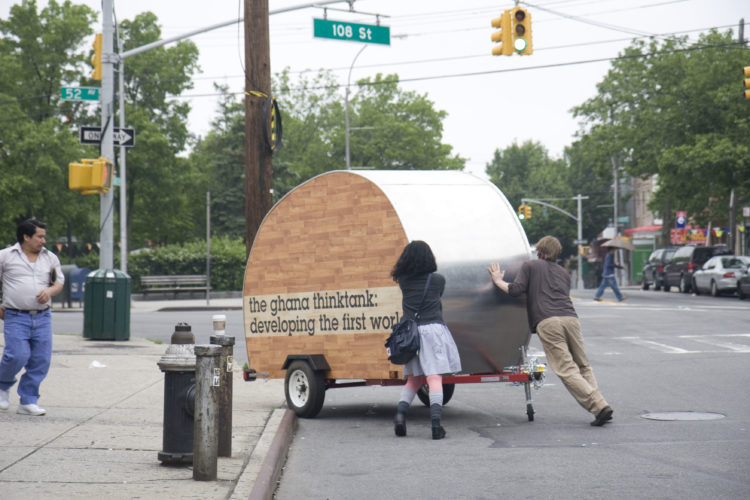
Ghana ThinkTank
Worldwide
Founded in 2006, the Ghana ThinkTank is a worldwide network of think tanks creating strategies to resolve local problems in the “developed” world. The network began with think tanks from Ghana, Cuba and El Salvador, and has since expanded to include Serbia, Mexico, and Ethiopia. In a recent project, we sent problems collected in Wales to think tanks in Ghana, Mexico, Serbia, Iran, and a group of incarcerated girls in the US Prison system. These think tanks analyze the problems and propose solutions, which we put into action back in the community where the problems originated—whether those solutions seem impractical or brilliant.
From the Journal
Events
- Ghana ThinkTank’s Creative Capital Project Launches to the Public September 22, 2019
Individual Bios
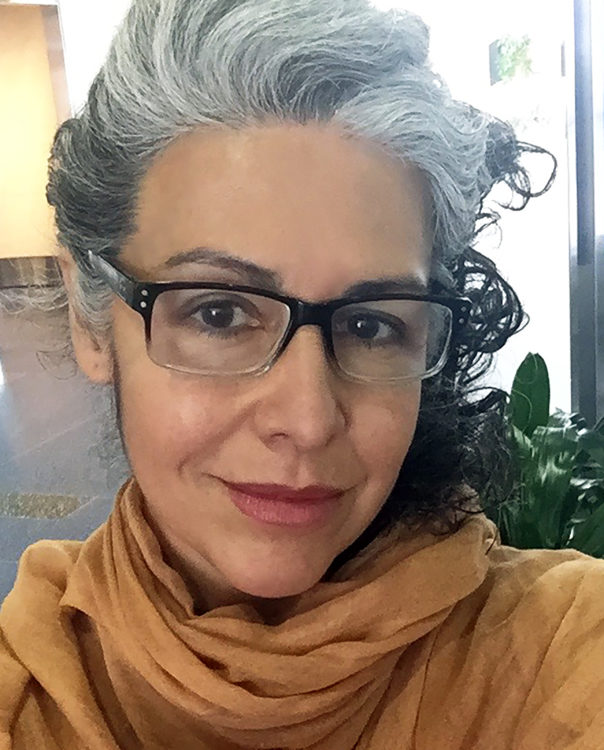
Maria del Carmen Montoya
Eugene, OR
Maria del Carmen Montoya operates in the contested ground between art and social activism. Her primary medium is the communal process of making meaning. As an artist, she seeks ways to catalyze this natural social phenomenon with situations that insist on the power of human-scale intervention in the presumed inevitability of everyday life. Her methodology is dialogic and collaborative. She believes that art can be a potent crucible for social change. Thus, her work is often about resistance and challenging norms, inverting power hierarchies and breaking rules, but she also traffics in beauty, memory, humor and other potentially radical forces for activating communities.
She has lived and worked throughout Latin America where she served as the sole interpreter for an assembly of rural farms in San Salvador, an advocate for battered women in Ciudad Juarez, Mexico and an English teacher for a craft cooperative in Quetzaltenango, Guatemala. Her work has been shown at SIGGRAPH, PERFORMA, New Museum Festival of Ideas, ZKM | Museum of Contemporary Art, Venice Biennial of Architecture and Centro Mexicano para la Música y las Artes Sonoras, in Morelia, Mexico, where she co-founded an artist residency for multimedia performance art.
From the Journal
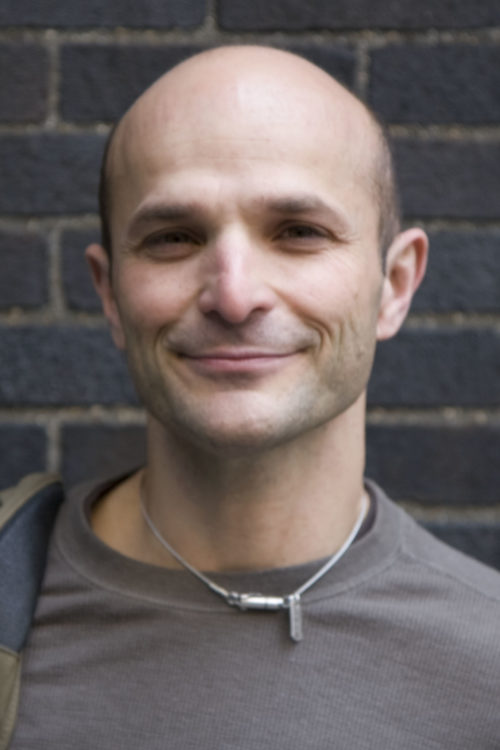
Christopher Robbins
Bedford, NY
Christopher Robbins works on the uneasy cusp of public art and community action, creating sculptural interventions in the daily lives of strangers. He built his own hut out of mud and sticks and lived in it while serving as a Peace Corps Volunteer in Benin, West Africa; spoke at a United Nations conference about his cross-cultural digital arts and education work in the South Pacific; and has lived and worked in London, Tokyo, West Africa, the Fiji Islands and the former Yugoslavia. He has exhibited at the Venice Biennial of Architecture, ZKM | Museum of Contemporary Art, New Museum Festival of Ideas, Trade School at the Whitney Museum, the National Museum of Wales, PERFORMA 07 and Nikolaj Kunsthallen/Copenhagen Contemporary Art Center. Robbins has been awarded residencies or fellowships from Skowhegan, MacDowell Colony, Haystack, Penland and Anderson Ranch, among others. He has an MFA from the Rhode Island School of Design and is on the sculpture faculty at SUNYPurchase.
